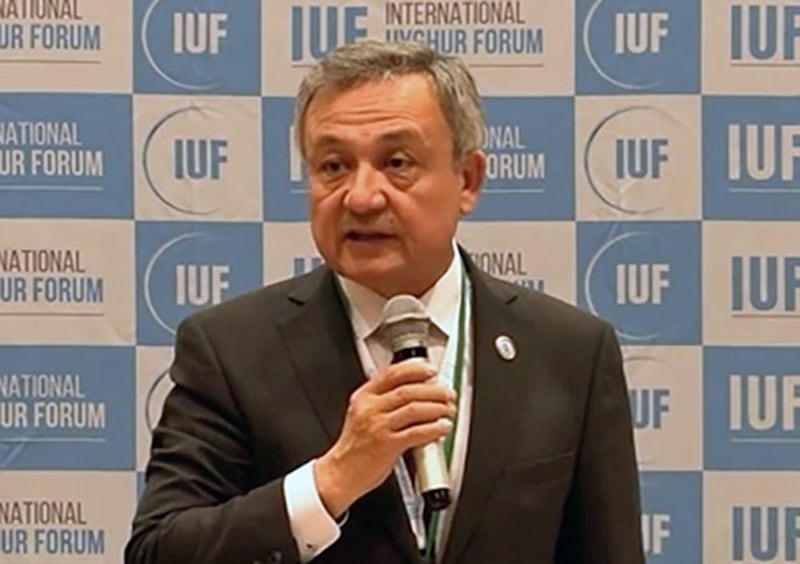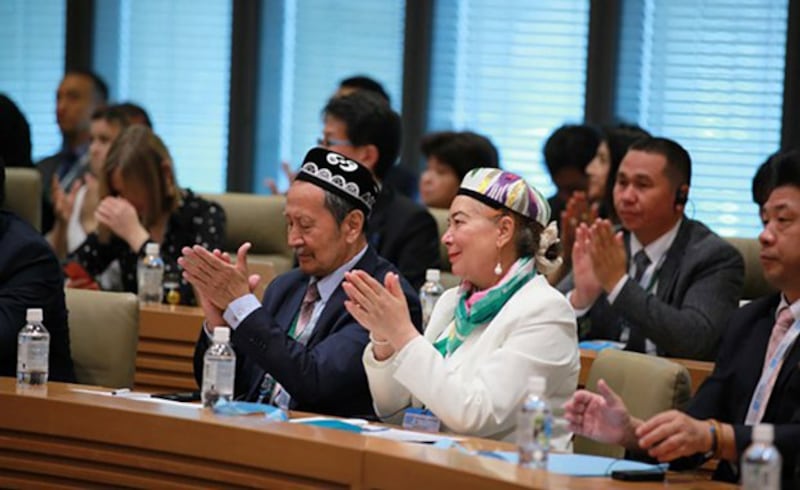Parliamentarians from around the world issued a joint declaration calling on Japan to conduct an independent investigation of the Chinese government’s rights abuses against Uyghurs in Xinjiang and to sanction Communist Party officials who have played a role in it.
More than 150 participants, including about 70 lawmakers from various nations, politicians, activists and representatives of civil society groupsattended the International Uyghur Forum at Japan’s parliament, or Diet, in Tokyo on Oct. 30-31 to discuss international responses to the human rights violations against the mostly Muslim Uyghurs who live in the far-western region of Xinjiang.
Chinese authorities have detained an estimated 1.8 million Uyghurs and Turkic minorities in Xinjiang in “re-education” camps. The United Nations has found evidence of torture, state-imposed forced labor and sexual violence against Uyghurs, and the United States and other Western governments has declared China’s actions crimes against humanity and a genocide.
Beijing denies the accusations, and says the facilities were vocational training centers and that they have since closed them.

“Despite recent claims by the Chinese government, that the internment camps have closed down, the situation is exacerbating, with millions of Uyghurs still arbitrarily detained in the Chinese concentration camps, and others facing extended prison sentences,” said the declaration.
The document urged to begin its own efforts to document the Uyghur genocide and to leverage its trade relationship with China to address the Uyghur’s plight.
“The world does not only consist of the U.S. and the European Parliament, but also Latin America, Africa and Asia,” said Dolkun Isa, president of the World Uyghur Congress, one of the organizers.
“That is why one of the reasons that we chose to host this forum in Japan, because Japan is one of the largest economic power players in Asia, in addition to being a democratic power player neighboring China,” he said.
‘Breaking the silence’
Another reason organizers chose Japan as host was to “break the silence of other Asian countries that are not familiar with what is happening to the Uyghurs and those who have been silent on the Uyghur genocide,” Isa said.
The first International Uyghur Forum was held in Brussels in November 2022.
Though Tokyo has not recognized the rights violations in Xinjiang as a genocide or crimes against humanity, the Japanese parliament passed a rare resolution expressing concern about rights issues in China, including the treatment of Uyghurs, Isa added.
Other conference organizers included the Japan Uyghur Parliamentary League, the Parliamentary League for Investigating and Taking action on Human Rights Violations by China, the Japan Uyghur Association and the Inter-Parliamentary Alliance on China.

“The Uyghur problem is a problem for all of humanity,” said Hiroaki Maruyama, chairman of National Association of Local Lawmakers Supporting Uyghurs.
“While the permanent members of the United Nations wage war and violate human rights, we are at a crossroads between walking the path of being a beast or walking the path of a human being,” he said. “We, the local assembly, will continue to act for the future of our children.”
Paul Strauss, who serves as a “shadow” senator representing the District of Columbia, said the United States took the right step by declaring the rights violations a genocide, by challenging China on human rights issues, and by leading with example of a country that practices religious tolerance and encourages freedom.
“It’s not the United States’ place to tell the Uyghurs what they need,” he said. “It is for the Uyghurs to ask for help and for us to give it.”
Legal strategies
Michael Polak, director of U.K-based Justice Abroad, said the conference attendees examined legal strategies they could take to address the issue following the submission of a criminal complaint to a court in Argentina.
Acting on behalf of the World Uyghur Congress and the Uyghur Human Rights Project, Polak filed the criminal case in August 2022, alleging that China committed genocide and crimes against humanity through its repressive policies targeting Muslims in Xinjiang.
The complaint was submitted to a Buenos Aires court under universal jurisdiction provisions set out in Argentina’s Constitution. The provisions allow the country’s criminal courts to investigate and try international crimes, such as genocide, torture and crimes against humanity wherever they occur in the world and to render judgments.
Conference participants also discussed the erosion of democratic systems in Hong Kong, military tensions around Taiwan, and China’s threat to peace and security in the Asia-Pacific region.
Translated by RFA Uyghur. Edited by Roseanne Gerin and Malcolm Foster.
